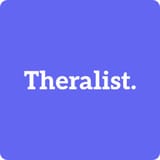Therapy for Anxiety: Options, Access and Support in Canada

Anxiety is more common in Canada than most people realize, touching the lives of families, friends and co-workers across the country. Almost 5.3 million Canadians struggle with anxiety disorders every single year, which is higher than most major health conditions combined. People talk about the cost of anxiety to the individual but what stands out is how much it also drains the economy, with anxiety-related mental health issues making up about 30 percent of all disability claims in Canada. There is way more support and therapy available than you might think and the surge in digital resources has made access easier than ever.
Table of Contents
- Understanding Anxiety And Its Impact In Canada
- Popular Therapy Options For Anxiety Relief
- How To Find A Qualified Therapist In Canada
- Support Resources For Canadians Living With Anxiety
Quick Summary
| Takeaway | Explanation |
|---|---|
| Anxiety is widespread in Canada. | Over 5.3 million Canadians struggle with anxiety disorders annually, affecting daily lives and well-being. |
| Cognitive Behavioural Therapy is highly effective. | CBT is the gold standard for anxiety treatment, focusing on changing negative thought patterns to manage symptoms effectively. |
| Mindfulness techniques support anxiety management. | Complementary approaches like mindfulness and relaxation techniques enhance coping skills and well-being for those with anxiety. |
| Select a qualified therapist carefully. | Look for professionals with specific credentials and experience in treating anxiety disorders for effective support. |
| Utilize diverse support resources. | Access online platforms, community networks, and emergency services for comprehensive mental health support in dealing with anxiety. |
Understanding Anxiety and Its Impact in Canada
Anxiety has emerged as a significant mental health challenge affecting millions of Canadians, creating complex ripple effects across personal, professional, and social landscapes. The Centre for Addiction and Mental Health reports that anxiety disorders represent the most prevalent mental health problem in Canada, impacting individuals across diverse age groups and backgrounds.
The Prevalence and Complexity of Anxiety
Statistics reveal a stark reality about mental health in Canada. According to Statistics Canada, approximately 5.3 million Canadians experience anxiety disorders annually. These are not mere numbers but represent real people struggling with persistent worry, overwhelming stress, and significant psychological distress.
Anxiety disorders manifest in multiple forms, including generalized anxiety disorder, social anxiety, panic disorder, and specific phobias. Each type presents unique challenges that can severely disrupt an individual’s ability to function effectively in daily life. The complexity of these disorders goes beyond temporary nervousness, representing chronic conditions that require professional intervention and comprehensive support strategies.
Economic and Social Implications
The impact of anxiety extends far beyond individual experiences, creating substantial economic and social consequences. Workplace productivity suffers significantly, with anxiety-related mental health issues costing the Canadian economy billions of dollars annually in lost productivity and healthcare expenses. Canadian Mental Health Association estimates that mental health problems, including anxiety, account for approximately 30% of short-term and long-term disability claims.

Moreover, anxiety disorders can lead to social isolation, strained relationships, and reduced quality of life. Individuals may struggle with maintaining employment, pursuing educational opportunities, or engaging in social interactions. The psychological burden is immense, often accompanied by additional mental health challenges such as depression.
Breaking the Stigma and Seeking Support
Despite the prevalence of anxiety, significant stigma remains surrounding mental health discussions in Canada. Many individuals hesitate to seek professional help due to misconceptions, fear of judgment, or lack of understanding about available resources. Learn more about finding professional support and taking the first step towards managing anxiety effectively.
Recognizing anxiety as a legitimate health concern is crucial. It requires a compassionate, comprehensive approach that combines professional therapy, personal coping strategies, and community support. By understanding anxiety’s complex nature and widespread impact, Canadians can work towards creating more inclusive, supportive environments that prioritize mental health and well-being.
Ultimately, anxiety is not a personal failure but a treatable condition. With proper support, education, and access to professional resources, individuals can develop effective management strategies and reclaim their quality of life.
Popular Therapy Options for Anxiety Relief
Navigating anxiety treatment requires understanding the diverse therapeutic approaches available to Canadians. According to a comprehensive review in the Canadian Medical Association Journal, several evidence-based therapies have demonstrated remarkable effectiveness in managing and alleviating anxiety symptoms.
Cognitive Behavioural Therapy: A Gold Standard
Cognitive Behavioural Therapy (CBT) stands out as the most widely recommended and researched approach for anxiety relief. This structured therapeutic method focuses on identifying and transforming negative thought patterns and behaviours that contribute to anxiety. CBT operates on the principle that our thoughts, feelings, and behaviours are interconnected, and by modifying dysfunctional thinking, individuals can develop healthier coping mechanisms.
The National Center for Complementary and Integrative Health emphasizes CBT’s robust evidence base, highlighting its ability to help individuals recognize and challenge irrational fears, develop practical problem-solving skills, and gradually confront anxiety-inducing situations. Therapists trained in CBT work collaboratively with clients, providing tools and strategies to manage anxiety symptoms effectively.
Mindfulness and Alternative Therapeutic Approaches
Beyond traditional talk therapies, mindfulness-based interventions have gained significant traction in anxiety treatment. These approaches emphasize present-moment awareness, teaching individuals to observe their thoughts and feelings without judgment. Mindfulness meditation, yoga, and relaxation techniques offer powerful complementary strategies for anxiety management.
Techniques such as deep breathing exercises, progressive muscle relaxation, and guided imagery can help individuals regulate their physiological stress responses. These methods are particularly beneficial for those seeking holistic approaches that integrate mental and physical well-being. Learn more about finding a therapist specializing in mindfulness techniques.
Specialized Therapeutic Interventions
Some individuals may benefit from more specialized therapeutic interventions tailored to specific anxiety presentations. Exposure therapy, for instance, is highly effective for specific phobias and anxiety disorders. This approach involves gradually and safely exposing individuals to anxiety-triggering situations, helping them build tolerance and reduce fear responses.
Other specialized approaches include acceptance and commitment therapy (ACT), which focuses on accepting difficult thoughts and feelings while committing to value-driven actions, and dialectical behaviour therapy (DBT), which combines cognitive-behavioural techniques with mindfulness strategies.
It is crucial to recognize that anxiety treatment is not one-size-fits-all. The most effective approach depends on individual needs, symptom severity, personal preferences, and potential underlying conditions. Consulting with a qualified mental health professional can help determine the most appropriate therapeutic strategy.
Whether through structured CBT, mindfulness practices, or specialized interventions, the goal remains consistent: empowering individuals to manage anxiety effectively, improve their quality of life, and develop long-term psychological resilience.
To help readers compare the primary therapy options for anxiety discussed in the article, the following table summarizes the method, benefits, and suitability of each therapy type mentioned.
| Therapy Type | Key Features / Methods | Benefits / Effectiveness | Suitable For |
|---|---|---|---|
| Cognitive Behavioural Therapy (CBT) | Identifying and changing negative thought patterns; structured exercises | Strong evidence base; highly effective for anxiety | Most anxiety disorders |
| Mindfulness-Based Therapies | Present-moment awareness, meditation, relaxation techniques | Enhances coping; holistic approach | Those wanting complementary techniques |
| Exposure Therapy | Gradual and safe exposure to anxiety triggers | Effective for phobias and specific anxieties | Specific phobias, intense triggers |
| Acceptance & Commitment Therapy (ACT) | Acceptance of thoughts, value-driven actions | Supports value-based living; addresses avoidance | Persistent or complex anxiety |
| Dialectical Behavioural Therapy (DBT) | Combines CBT with mindfulness strategies | Emotion regulation; for complex anxiety cases | Complex anxiety or comorbidities |
How to Find a Qualified Therapist in Canada
Finding a qualified therapist for anxiety treatment requires careful research and understanding of professional credentials in Canada. Anxiety Canada emphasizes the importance of selecting a mental health professional who specializes in anxiety disorders and possesses the appropriate qualifications.
Professional Credentials and Registration
In Canada, mental health professionals must meet specific regulatory standards. Different provinces have distinct registration requirements for therapists, psychologists, and counsellors. Key professional credentials to look for include:
- Registered Psychologist: Licensed by provincial psychology colleges
- Registered Psychotherapist: Regulated by the College of Registered Psychotherapists
- Clinical Social Worker: Registered with provincial social work associations
- Psychiatrist: Medical doctors specializing in mental health
The Canadian Psychological Association recommends verifying a therapist’s credentials through provincial regulatory bodies. This ensures the professional has completed required education, training, and maintains ongoing professional development standards.
The following table outlines the roles, registration, and credential requirements of mental health professionals in Canada, helping readers understand how to evaluate therapist qualifications as discussed in the article.
| Professional Title | Regulating Body | Primary Role / Credentials |
|---|---|---|
| Registered Psychologist | Provincial psychology colleges | Licensed; extensive education and training |
| Registered Psychotherapist | College of Registered Psychotherapists | Regulated; specialized mental health training |
| Clinical Social Worker | Provincial social work associations | Registered; social work background and training |
| Psychiatrist | Provincial medical colleges | Medical doctor specializing in mental health |
Selecting the Right Therapeutic Approach
Matching your specific anxiety needs with a therapist’s expertise is crucial. Some therapists specialize in specific treatment modalities like Cognitive Behavioural Therapy, while others offer more holistic approaches. Consider factors such as:
- Treatment experience with anxiety disorders
- Specialization in your specific type of anxiety
- Therapeutic approach alignment with your personal preferences
- Cultural competence and understanding
Start exploring therapist profiles to find professionals who match your specific requirements and therapeutic goals.
Practical Considerations in Therapist Selection
Beyond professional credentials, practical factors play a significant role in finding the right therapist. The Centre for Addiction and Mental Health suggests considering:
- Insurance coverage and session costs
- Location and availability (in-person or virtual sessions)
- Language preferences
- Scheduling flexibility
- Initial consultation options
Many therapists offer complimentary initial consultations, allowing you to assess compatibility and comfort level. Trust your instincts during these initial interactions. A strong therapeutic relationship is fundamental to effective anxiety treatment.
Remember that finding the right therapist might take time. Do not get discouraged if the first professional you contact is not the perfect match. Each consultation brings you closer to finding a supportive mental health professional who can help you navigate your anxiety effectively.
Ultimately, investing time in finding a qualified, compassionate therapist is an investment in your mental health and overall well-being. Approach the search process with patience, thorough research, and a commitment to your personal growth and healing.
Support Resources for Canadians Living With Anxiety
Coping with anxiety requires a comprehensive support system that extends beyond individual therapy. Anxiety Canada emphasizes the importance of diverse resources that can help individuals manage their mental health effectively and build resilience.
Digital and Online Support Platforms
In the digital age, online resources have become increasingly vital for mental health support. The Province of British Columbia has pioneered virtual mental health supports that provide immediate, accessible assistance for individuals experiencing anxiety.
These digital platforms offer various services including:
- Online counseling sessions
- Self-guided mental health modules
- Interactive anxiety management tools
- Anonymous support chat services
- Educational resources about anxiety disorders
Find comprehensive mental health support resources tailored to your specific needs and comfort level.
Community and Peer Support Networks
Peer support networks play a crucial role in anxiety management. The Centre for Addiction and Mental Health highlights the therapeutic value of connecting with others who understand similar experiences.
Canadian communities offer various support mechanisms:
- Local support groups
- Online forums and discussion boards
- Workshops and community mental health programs
- Peer-led anxiety management sessions
- University and workplace wellness programs
Professional and Emergency Support Channels
Beyond ongoing support, Canadians have access to professional emergency mental health resources. Critical support channels include:
- Crisis helplines operating 24/7
- Provincial mental health emergency services
- Telehealth mental health consultations
- Mobile crisis intervention teams
- Employee assistance programs
These resources provide immediate intervention, professional guidance, and critical support during acute anxiety episodes. Many offer multilingual services to ensure accessibility across diverse Canadian communities.
Remember that seeking help is a sign of strength, not weakness. Each resource represents a step towards understanding, managing, and ultimately improving your mental health journey. Whether you prefer digital platforms, community networks, or professional support channels, numerous options exist to support your well-being.
Navigating anxiety is a personal process. Be patient with yourself, explore different resources, and remember that comprehensive support involves multiple strategies tailored to your unique needs.

Frequently Asked Questions
What are the common therapy options for anxiety treatment in Canada?
Popular therapy options for anxiety treatment in Canada include Cognitive Behavioural Therapy (CBT), mindfulness-based therapies, exposure therapy, Acceptance and Commitment Therapy (ACT), and Dialectical Behavioural Therapy (DBT). Each method has its own focus and effectiveness depending on individual needs.
How can I find a qualified therapist for anxiety in Canada?
To find a qualified therapist, look for professionals with appropriate credentials like a Registered Psychologist or Registered Psychotherapist. It’s important to check their experience with anxiety disorders and consider factors such as therapeutic approach, language preferences, and availability.
What is the effectiveness of Cognitive Behavioural Therapy (CBT) for anxiety?
Cognitive Behavioural Therapy (CBT) is widely regarded as the gold standard for anxiety treatment due to its strong evidence base. It helps individuals identify and change negative thought patterns, improving coping strategies and alleviating anxiety symptoms.
Are there online support resources available for Canadians living with anxiety?
Yes, there are numerous digital support platforms available, including online counseling, self-guided mental health modules, and anonymous chat services. These resources offer immediate assistance and can be valuable tools for managing anxiety.
Ready to Find the Right Anxiety Support in Canada?
Struggling to navigate the overwhelming world of therapy options? You are not alone. Many Canadians face barriers like anxiety stigma, confusion about therapist qualifications, and uncertainty over where to turn for real help. If you are looking for a trusted way to access licensed professionals who truly understand anxiety, you are exactly where you need to be.

Now is the time to take action for your well-being. Theralist connects you with therapists across Canada who specialize in anxiety, mindfulness, CBT, and more. You can easily search by province or city, view therapist credentials and specialties, and get started at your own pace. Visit Theralist’s main site to browse profiles or learn more about mental health support options in your area. Start your journey toward relief and support today.
Recommended
- Theralist - Find a Therapist in Your Area
- Annette Gravelle, Registered Psychotherapist, Ontario - Theralist
- Meg Aston-Lebold, Psychologist, Ontario - Theralist
- Victoria Brassard-Monahan, Registered Psychotherapist (Qualifying), Kingston, ON - Theralist
- Mental Health and Dental Care: What Edmonton Families Need in 2025 - Unity Square Dental
- Therapy Versus Coaching: Choose the Right Support for 2025 - Mastering Conflict





